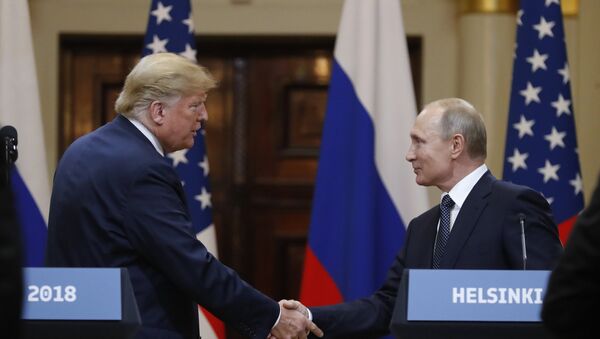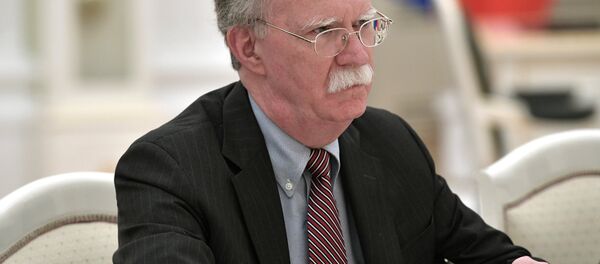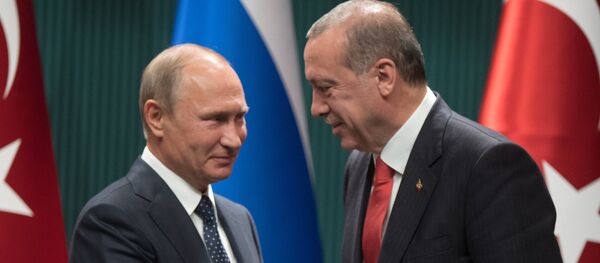Sputnik discussed the issue with Scott Bennett, political analyst based in US.
Sputnik: How would you assess the G20 summit that concluded in Buenos Aires?
Scott Bennett: You know it was a 50-50 draw. In one sense, it was a victory for the United States and Trump with regards to China, because it didn't implode, it didn't blow up in its face. It wasn't a violent end or in any way disharmonious; it gave President Trump an opportunity to sit down and clasp champagne glasses with President Xi and say that we're going to have peace for a little while and not raise tariffs in order to get the conversation going. And that's really what the American people wanted Trump to do — to start conversations.
READ MORE: Analyst Explains Why Cancellation of Direct Putin-Trump G20 Talks is Flop for US
However, it was a failure with regard to his relationship with Vladimir Putin as far as I'm concerned, because I had strongly recommended along with many other intelligence analysts that President Trump sit down and have a very thorough, long heart-to-heart talk with President Putin on all of these issues regarding Syria, Libya, the Middle East wars, regarding Saudi Arabia, Iran, regarding Ukraine and the latest provocations by Poroshenko to try and cover his political presidency by declaring martial law in a fabricated puppet show that Poroshenko is notorious for.
The American people don't want conflict with Russia; and they voted for Trump specifically for that purpose — to normalise relations. So, I think that on the Russian side, it was a victory for Putin, even though Trump was generally liked by a lot of the people there; but it was also partly a victory for President Trump, with the relationship with China, the trade wars and all that stuff.
Sputnik: Some commentators have said that President Trump acted rather erratically throughout the two-day summit, dropping bilateral meetings, announcing that he would hold a press conference and then changing his mind a few hours later, citing the death of the previous president George H. W. Bush; it's a massive opportunity missed with regard to that, to a certain extent. Let me just ask you about this bone of contention, because they're talking about rules based on international law, but this is something that the American administration are very much vividly against. Can you explain why there's such a bone of contention with regard to that particular wording?
He's doing that on really everything, from the JCPOA to the missile agreement with Russia that was signed in the late 1980s and now with the world trade and economic relationships with Mexico, Canada, China and others. He is coming in, trying to reshuffle all of these things from a businessman's perspective to again, focus on getting the best economic deals for the American workers, making them competitive with the world; and that is always his modus operandi. That wins him political points, of course, because the American worker has sensed globalism has taken their jobs.
READ MORE: US Office Contacted Kremlin After Canceled Putin-Trump Meeting — Kremlin Aide
It's opened up free trade to the point where American workers can't compete, because they can't work for Chinese wages, they can't work for $2 a day; the American worker has to work for $20 a day. There's a cultural differential, of course, in America from China, or Mexico, or some other countries where you set up a factory or a sweatshop. They can do that in Thailand, they can do that in the Philippines, they can do that in China, they can't do that in Des Moines, Iowa, they can't do that in Chicago.
So there are cultural imbalances and differences that go back to the 1950s and 1940s, after WWII. Trump is trying to go back, to a certain extent; he won't be able to go all the way back, but he is trying to go back somewhat, and resurrecting the American manufacturing industry. All of this is gaining a lot of political ground for him because he is attracting the blue collar class. Never forget, the Democrats in America have desperately sought to seek illegal aliens to come in to America as their new political volume block, so they've abandoned the American manufacturing class, and that is going to become increasingly seen in the political elections in the next two years.
Sputnik: The communique will include the provision calling for the need for WTO reform; do you think the WTO does need to reform? Is a reform beneficial for the total global entities, or is it more of a basis for a USA win?
Scott Bennett: Politically, Donald Trump has already committed himself to being a 'nationalist', not a 'globalist'. Globalism in America has a very bad flavour because it's got the original flavour of George W. Bush and Dick Cheney seeking to destroy the Middle East regimes and really achieve full spectrum dominance over the world so that the global corporate elites from Starbucks and Walmart, and every other company could have market share in the world. That's what globalism started to mean in 2001, and it was expanded under Obama in a very militant and violent way, not in a peaceful, open and sharing way, but in a violent way, with a military base setting up drones, and things like that.
Americans have a very unhealthy attitude towards globalism because of its own militant behaviour and I think that the world has too. Trump is wise to say he's a nationalist, and I realize that it sparks fear in Macron and others because they exist by trying to create a large global entity, but that's not going to happen.
The views and opinions expressed by the speaker do not necessarily reflect those of Sputnik.



